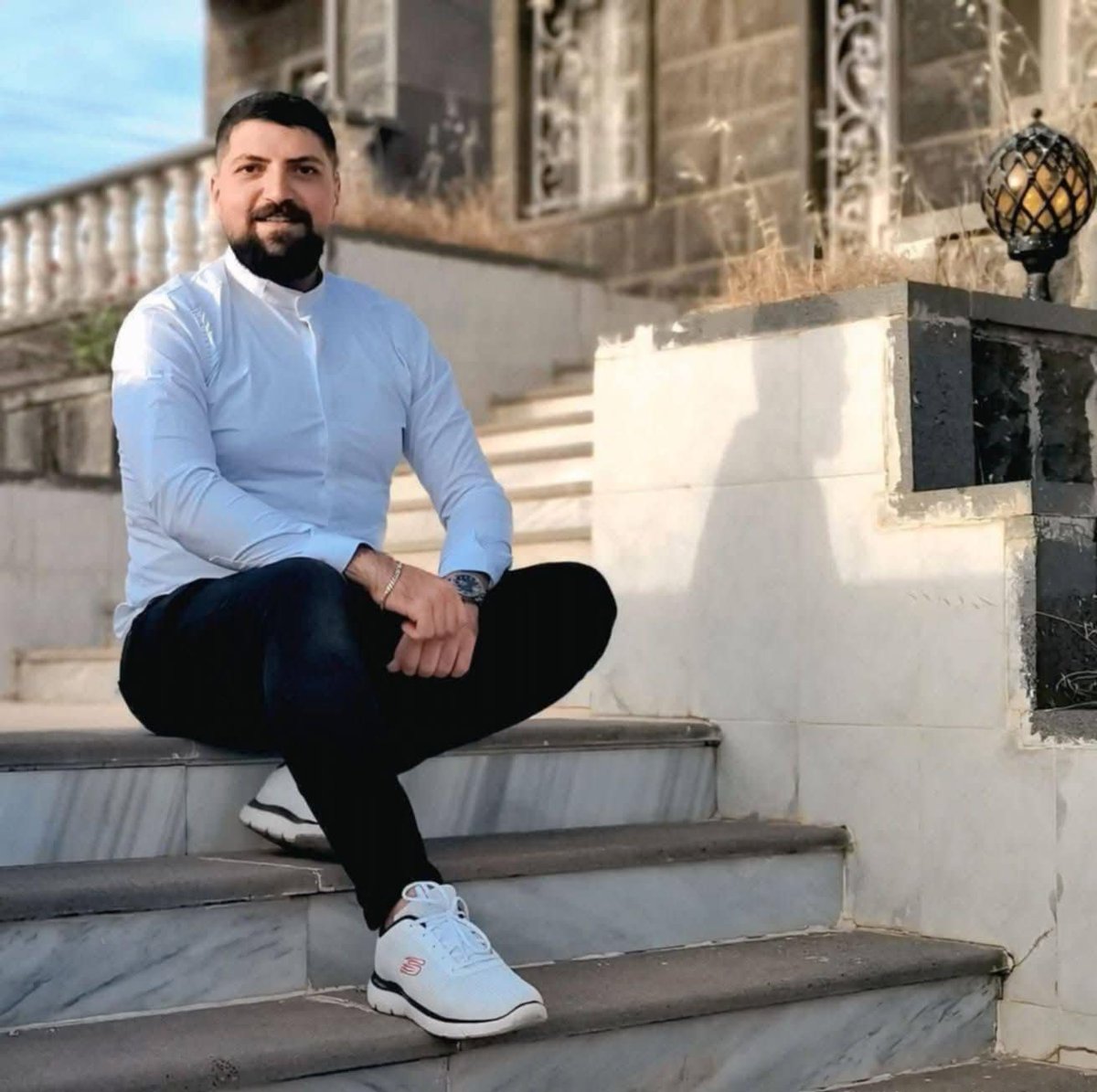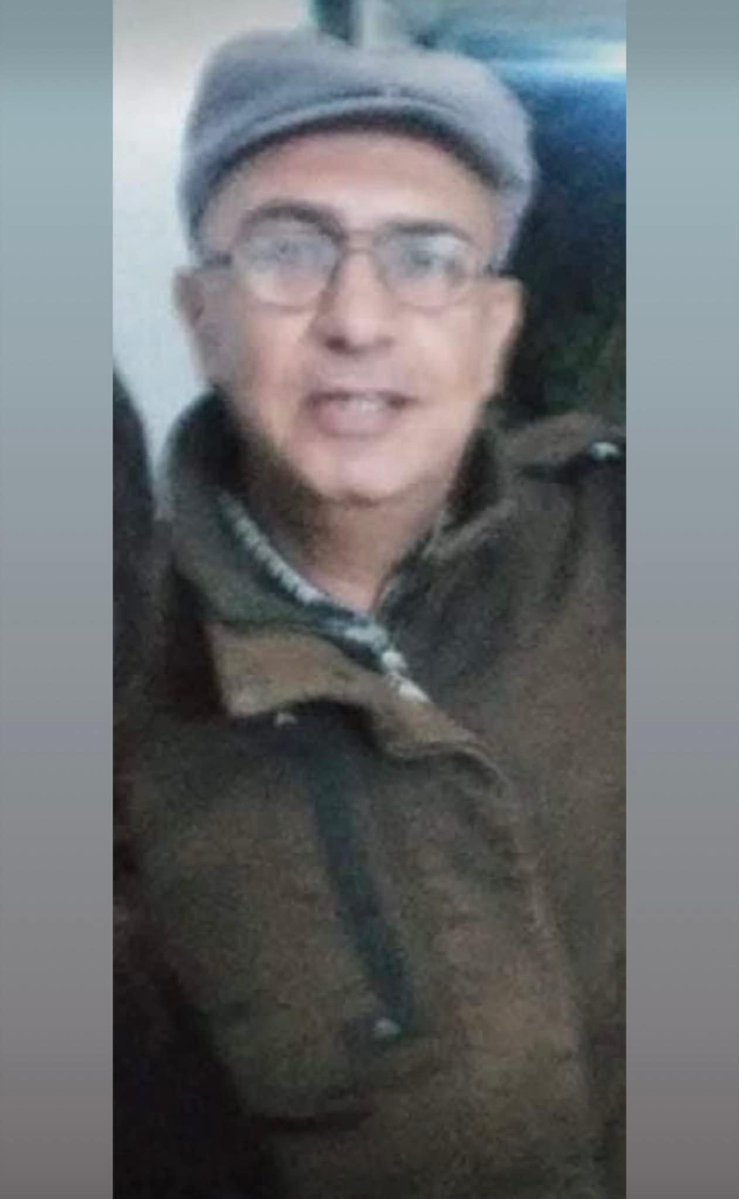1/ Developments in Syria going so fast that reports become obsolete moments later.
I've reported from inside Syria since 2011 and I live in the MidEast. So, let me explain in this thread what the implications could be for Syria and wider region in case the Syrian regime falls:
I've reported from inside Syria since 2011 and I live in the MidEast. So, let me explain in this thread what the implications could be for Syria and wider region in case the Syrian regime falls:
2/ First, let me explain which units are participating in this offensive on the side of anti-Assad forces. Most belong to HTS. which split from Al-Qaeda in 2016. However, since 2018 HTS is designated a foreign terrorist group by the US State Department.
3/ HTS is active around Aleppo and Hama. The commander of HTS is Abu Muhammad al-Jolani. Earlier he headed Nusra Front (Al Qaeda in Syria). After HTS split from AlQaeda, he claims to have distanced himself from AQ. There is still a $10 million bounty on his head by the U.S.
4/ In addition to the HTS operation, there is another offensive going on simultaneously. This second battle is by the SNA (Syrian National Army - a Turkey funded Syrian rebel umbrella organization). The SNA operation is mainly targeting Kurdish forces north of Aleppo.
5/ HTS takes lead, but following brigades also participate in offensive against Assad forces:
-Faylak Al Sham (Sham Corps)
-Jaysh al-Izza (Army of Pride)
-Suqour al-Sham (Sham Falcons)
-Ahrar alSham (Sham Free Men)
-Turkistan Brigade
-Ansar alTawhid (Supporters of Monotheism)
-Faylak Al Sham (Sham Corps)
-Jaysh al-Izza (Army of Pride)
-Suqour al-Sham (Sham Falcons)
-Ahrar alSham (Sham Free Men)
-Turkistan Brigade
-Ansar alTawhid (Supporters of Monotheism)
6/ The Turkistan Brigade is interesting. Most of its members are jihadists from a/ Central Asia (Uzbeks, Tadjiks), b/ Chinese Uyghurs or c/ non-Syrian Arab fighters from the Middle East or Europe. Most came already to Syria for jihad in 2012-2015.
7/ Almost all SNA groups are involved in fighting Kurds north of Aleppo. But 3 SNA battalions are part of HTS led offensive against Assad:
-Suleiman Shah Division
-Hamza Division
-AlJabha alShamiya (Levant Front)
There are no foreign fighters in SNA, some are Syrian Turkman.
-Suleiman Shah Division
-Hamza Division
-AlJabha alShamiya (Levant Front)
There are no foreign fighters in SNA, some are Syrian Turkman.
8/ Impossible to predict if the regime of Syrian president Assad will fall. But if so, these could be the implications for Syria. (Obviously the situation is super fluid. But based on my experience in war-torn Syria, these scenarios seem at this moment most likely):
9/ If HTS and allies take over Syria they will enforce a strict interpretation of Sharia law. Although there are (cultural and historical) differences between HTS and the Taliban in Afghanistan, think of Syria under HTS turning into a "Taliban-light" state.
10/ HTS and its predecessor Jabhat al Nusra have a bad track record when it comes to the treatment of ethnic and religious minorities.
11/ Expect refugees. Syrian Christians, Kurds &other minorities will try to leave, mostly to Lebanon, Europe or US.
Sectarian hatred runs high in Syria. Especially the Alawite & Shia populations might be under risk of serious revenge attacks by HTS and other opposition groups.
Sectarian hatred runs high in Syria. Especially the Alawite & Shia populations might be under risk of serious revenge attacks by HTS and other opposition groups.
12/ Very uncertain what will happen in Latakia and Tartous areas (western coastal region) where most Alawites live. This is also the region where Russia has their important naval facility. Will Russians evacuate? Can Alawites defend this area? Totally unclear at the moment.
13/ Same goes for people linked to Assad institutions- politicians, journalists, soldiers, police, civil servants etc. Many will fear revenge attacks by HTS &allies and will try to escape, either Lebanon or Jordan. Others might stay and hope for the best. Or be forced to repent.
14/ What will happen to the Kurds in Syria is also very unclear at the moment. SDF controlled areas in the northeast, where also American ground troops are present, might be able to survive due to US protection.
But American troops are only present east of the Euphrates River. There are no US troops west of the Euphrates. Therefore places such as Sheikh Maqsoud (Kurdish neighborhood in Aleppo city) and Tal Rifaat and Manbij (north/northeast of Aleppo) might be run over by HTS or SNA. But even Kobani and Raqqa are vulnerable because US ground forces are located at quite a distance.
But American troops are only present east of the Euphrates River. There are no US troops west of the Euphrates. Therefore places such as Sheikh Maqsoud (Kurdish neighborhood in Aleppo city) and Tal Rifaat and Manbij (north/northeast of Aleppo) might be run over by HTS or SNA. But even Kobani and Raqqa are vulnerable because US ground forces are located at quite a distance.
15/ Possible fall of Syrian gov also has huge implications for eastern Syria where Islamic State still has a large covert present. If Deir Ezzor falls, expect Islamic State to regroup &take over parts of east Syria &desert areas in Homs province. IS and HTS will fight each other.
16/ Obviously, in case the Syrian regime of President Assad collapses, it will have huge repercussions for the wider Middle East. I will explain the impact of this all country by country. Let's start with Turkey:
17/ For Turkey, the possible fall of Assad means the following:
-Via its proxies in Syria (SNA and HTS) Turkey will hugely expand its power and influence in Syria, which was from 1516 until 1918 part of the Ottoman Empire.
-Removal from Syria of Turkey's old rival Russia. Erdogan wins, Putin loses.
-Weakening/finishing off much-hated Kurdish forces in Syria.
-With Syria pacified by HTS and its allies, Turkish president Erdogan can send millions of Syrian refugees from Turkey back to Syria "as the war is over and Assad is gone". AKP will go up in the polls.
-Via its proxies in Syria (SNA and HTS) Turkey will hugely expand its power and influence in Syria, which was from 1516 until 1918 part of the Ottoman Empire.
-Removal from Syria of Turkey's old rival Russia. Erdogan wins, Putin loses.
-Weakening/finishing off much-hated Kurdish forces in Syria.
-With Syria pacified by HTS and its allies, Turkish president Erdogan can send millions of Syrian refugees from Turkey back to Syria "as the war is over and Assad is gone". AKP will go up in the polls.
18/ For Russia, the possible fall of Assad means the following:
-No more ally in Damascus, end of political influence in Syria.
-Outsmarted by Turkey.
-No more or very limited military presence in Syria. Moscow's Saigon?
- Possible end to super important Tartus Naval base, established back in 1971 during the times of the Soviet Union.
-No more ally in Damascus, end of political influence in Syria.
-Outsmarted by Turkey.
-No more or very limited military presence in Syria. Moscow's Saigon?
- Possible end to super important Tartus Naval base, established back in 1971 during the times of the Soviet Union.
19/ For Israel, the possible fall of Assad means the following:
-With Syria in the hands of jihadists, it will be impossible for Iran to keep transporting weapons over land from Iran, via Iraq and Syria to its proxy Hezbollah in Lebanon. With Beirut airport and Lebanese ports de facto controlled by Israeli naval and air forces, Hezbollah can't rearm. A major win for Israel.
-Just as Iranian weapons can't reach Hezbollah anymore, the Iranian military loses access to Lebanon and Syria.
- In the short term: HTS ruled Syria will keep Syria unstable and weak due to endless internal military and religious conflicts. Hardly a threat to Israel.
- But in the long term: As jihadi groups traditionally get out of control; Israel will expect Western ally Turkey to reign in HTS on time.
-With Syria in the hands of jihadists, it will be impossible for Iran to keep transporting weapons over land from Iran, via Iraq and Syria to its proxy Hezbollah in Lebanon. With Beirut airport and Lebanese ports de facto controlled by Israeli naval and air forces, Hezbollah can't rearm. A major win for Israel.
-Just as Iranian weapons can't reach Hezbollah anymore, the Iranian military loses access to Lebanon and Syria.
- In the short term: HTS ruled Syria will keep Syria unstable and weak due to endless internal military and religious conflicts. Hardly a threat to Israel.
- But in the long term: As jihadi groups traditionally get out of control; Israel will expect Western ally Turkey to reign in HTS on time.
20/ For Iran, the possible fall of Assad means the following:
-Iran loses a major ally in the region. Total disaster for Tehran.
- Iran can't any longer rearm proxy Hezbollah in Lebanon as the route from Iran to Lebanon is closed.
-Regional rival Turkey expands its power while Iran experiences an embarrassing end to their political and military presence in Syria and Lebanon resulting in a weakening of Shiite interests in Syria, Lebanon and even Iraq.
-Iran loses a major ally in the region. Total disaster for Tehran.
- Iran can't any longer rearm proxy Hezbollah in Lebanon as the route from Iran to Lebanon is closed.
-Regional rival Turkey expands its power while Iran experiences an embarrassing end to their political and military presence in Syria and Lebanon resulting in a weakening of Shiite interests in Syria, Lebanon and even Iraq.
21/ For the U.S. the possible fall of Assad means the following:
-Russians out of Syria.
-Hated Iran ally Assad after a marathon struggle finally gone.
-Isolating Hezbollah in Lebanon.
In other words: All smiles. (Until of course the day comes when HTS gets out of control and/or IS regroups)
-Russians out of Syria.
-Hated Iran ally Assad after a marathon struggle finally gone.
-Isolating Hezbollah in Lebanon.
In other words: All smiles. (Until of course the day comes when HTS gets out of control and/or IS regroups)
22/ For Lebanon the possible fall of Assad means the following:
-Little Lebanon might get sandwiched between its only two neighbours Israel and a jihadi run Syria.
-As Hezbollah can't rearm, will other religious groups inside Lebanon try to (forcefully?) fill the vacuum after the weakening of Hezbollah? Possibly leading to religious tension and civil strife.
-Possible reactivation of jihadi groups and terrorism inside Lebanon with support from HTS in Syria.
-Little Lebanon might get sandwiched between its only two neighbours Israel and a jihadi run Syria.
-As Hezbollah can't rearm, will other religious groups inside Lebanon try to (forcefully?) fill the vacuum after the weakening of Hezbollah? Possibly leading to religious tension and civil strife.
-Possible reactivation of jihadi groups and terrorism inside Lebanon with support from HTS in Syria.
23/ For Iraq, the possible fall of Assad means the following:
-HTS victory in Syria might inspire similar groups in neighboring Iraq, especially in Sunni areas.
-Resurrection of Islamic State in Eastern Syria can easily spill over across the border to (western) Iraq. Such a return of Islamic State to Iraq will be accompanied by terrorism and possible civil war.
-HTS victory in Syria might inspire similar groups in neighboring Iraq, especially in Sunni areas.
-Resurrection of Islamic State in Eastern Syria can easily spill over across the border to (western) Iraq. Such a return of Islamic State to Iraq will be accompanied by terrorism and possible civil war.
• • •
Missing some Tweet in this thread? You can try to
force a refresh































